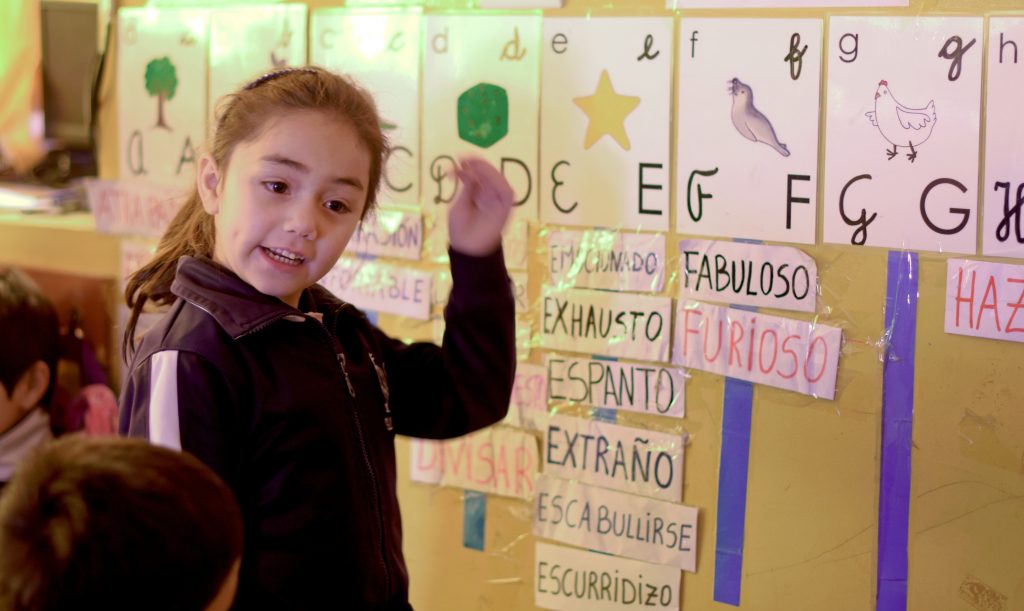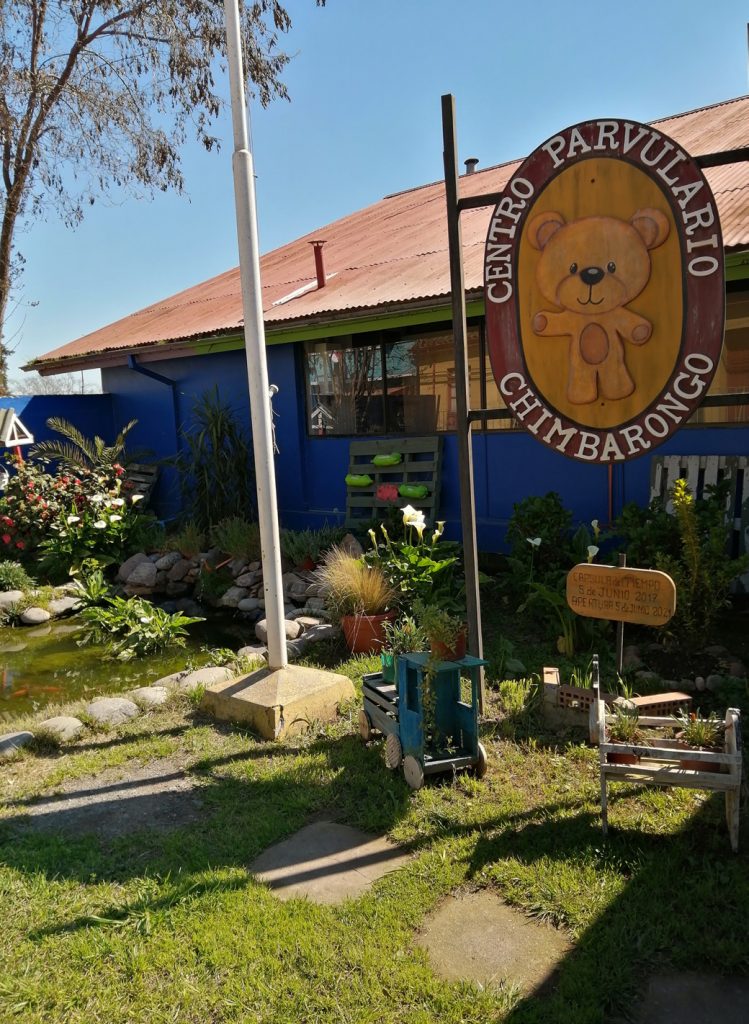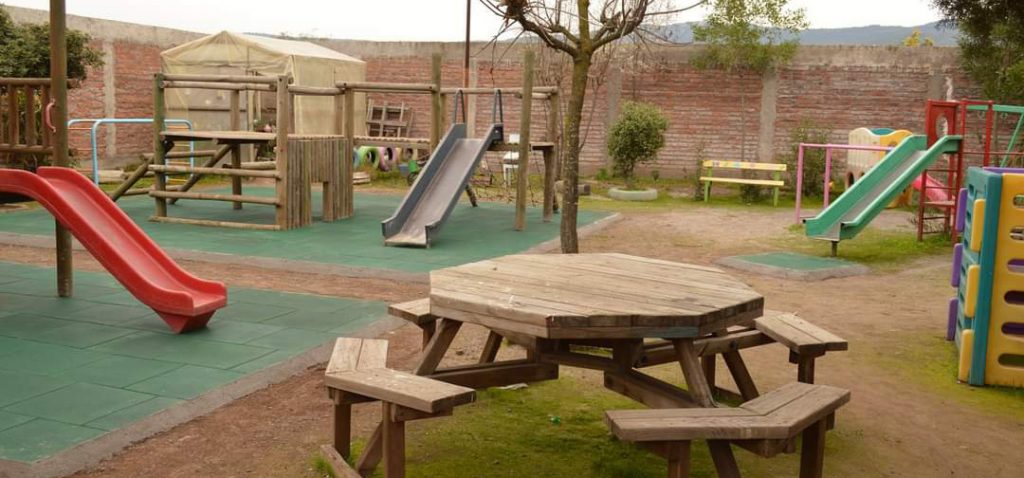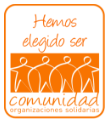In order to continue with the educational process of its 78 children during the confinement, the Chimbarongo Kindergarten Centre, in the O'Higgins region, implemented the curriculum prioritisation, suggested by the Mineduc, in its distance classes. For this reason, the establishment designed a technical support document for the daily work of the pedagogical teams, whose purpose has been to evaluate and monitor the objectives of Level 1 (Essential). The strategy has required a great deal of collaboration within the nursery school and has become a reference for other educators in the commune.

"This time has been chaotic," says Margarita Gaete, Benjamín's mother and a pre-kindergarten parent. "For the children, being cooped up has translated into profound stress, and we adults have had to juggle taking care of the house, work, health and our children's education. All of this has affected our routines.
On the complexities faced by the education team during the suspension of face-to-face classes, educator Luisa Muñoz warns: "The internet connection in some areas is terrible and that has made it difficult for us to work remotely, but on the other hand, no one was emotionally prepared to educate in a pandemic.
"I was concerned about the state of mind at the centre to face this task," says Marcela Lira, the school's director. " We started immediately with an initial counselling session with the school's professionals, focusing on the emotional support of each of us, of each educator.
"We were lucky to have a psychologist on the team," says Luisa Muñoz. "She has been able to give us talks, support, but also guidance on how to help families.

"At the educational level there was also a huge concern," adds Marcela Lira, "especially because in pre-kindergarten and kindergarten we can't just send a guide or have an online class: the children require much more support, and here our greatest support has always been the parents.
In the first stage of the crisis, the Kindergarten Centre, following its annual plan, coordinated the sending and withdrawal of activities for the students via WhatsApp. But the establishment, along with that, incorporated surveys to find out what the situation was in their community, regarding family contexts and the willingness at home to continue with the educational process of their children.
"We needed to know what the emotional situation of the students was, if they were motivated, what obstacles they had encountered in carrying out the activities, and based on that we moved forward and developed the second stage, because the response we had from our children's entry conditions was immediate," says Marcela Lira.
"After a short time, we realised that the context and the return of evidence from the families was disparate," says educator Luisa Muñoz.
"The Centre's concern has been exemplary, but this year has helped us parents to be closer to our children's progress and also to their academic difficulties," says parent Margarita Gaete. "However, because of the little time we have, because of work or home, our support is often not the best and the children feel it.

"The most important thing is the emotional health of our children," says educator Luisa Muñoz. "The surveys showed us that the children were stressed, anxious, some had even shown signs of aggression. The parents were also unable to carry out the activities we sent: they didn't have the space, the time, sometimes they went out to work and their children had to do their chores at night, or with a sibling or an older adult.
At the Kindergarten Centre, they explain that this hampered the interaction of activating previous knowledge or seeing mistakes as a learning opportunity: "We had to generate the connection with the families so that they could implement work aimed at the objectives we needed to develop, and the information we gathered through the questionnaires gave us the guidelines for this," says director Marcela Lira.
"The experience had to be adapted and prioritisation had to be systematised," says Luisa Muñoz.
"We gathered the information from the Ministry of Education, defined the specific learning that we needed to promote and focused on Level 1," says Marcela Lira. " But the big challenge was to adapt them to the reality we had discovered, and through the technical council we designed the indicators that allowed us to know if our children had effectively achieved the prioritised objectives, paying special attention to those who presented the most difficult contexts.
"Prioritising learning in Level 1 has involved the whole educational team," says teacher Luisa Muñoz, "and has allowed us, for example, to have pre-kinder in Language to deepen reading comprehension and phonoaudiological awareness, but postpone phoneme, grapheme and writing for kinder. Or if we had to work on 3 learning areas, the document we generated has helped us to identify which is the focus that involves all 3, and from there deliver a more meaningful planning and experience, especially so that children with more difficulties do not see their learning interrupted. We have seen the results confirmed in the video call evaluation we conducted with each family at the end of the first semester and it has motivated us to advance to Level 2.
This initiative is part of the document "Early Education: 6 Innovations in times of Covid-19" that you can download in full at the following link https://bit.ly/3eokQoC





